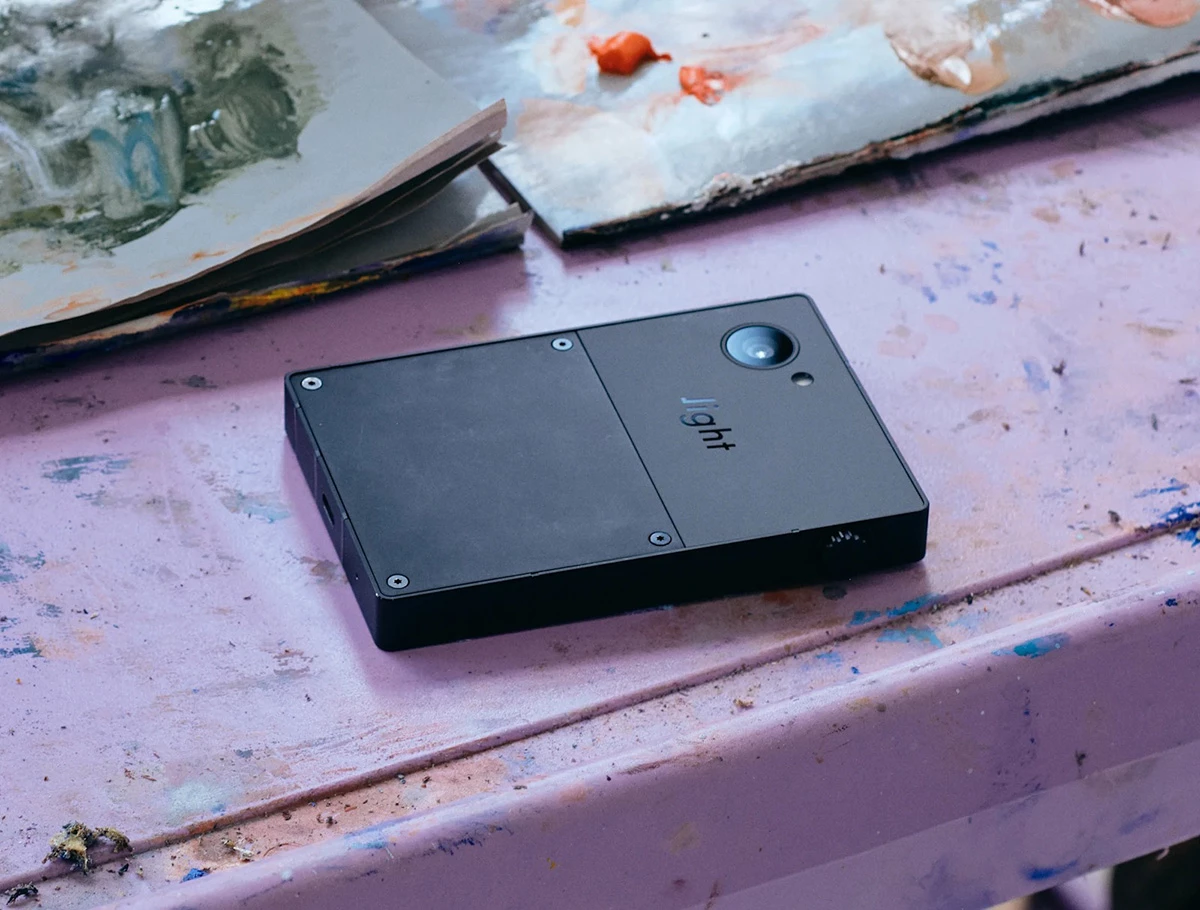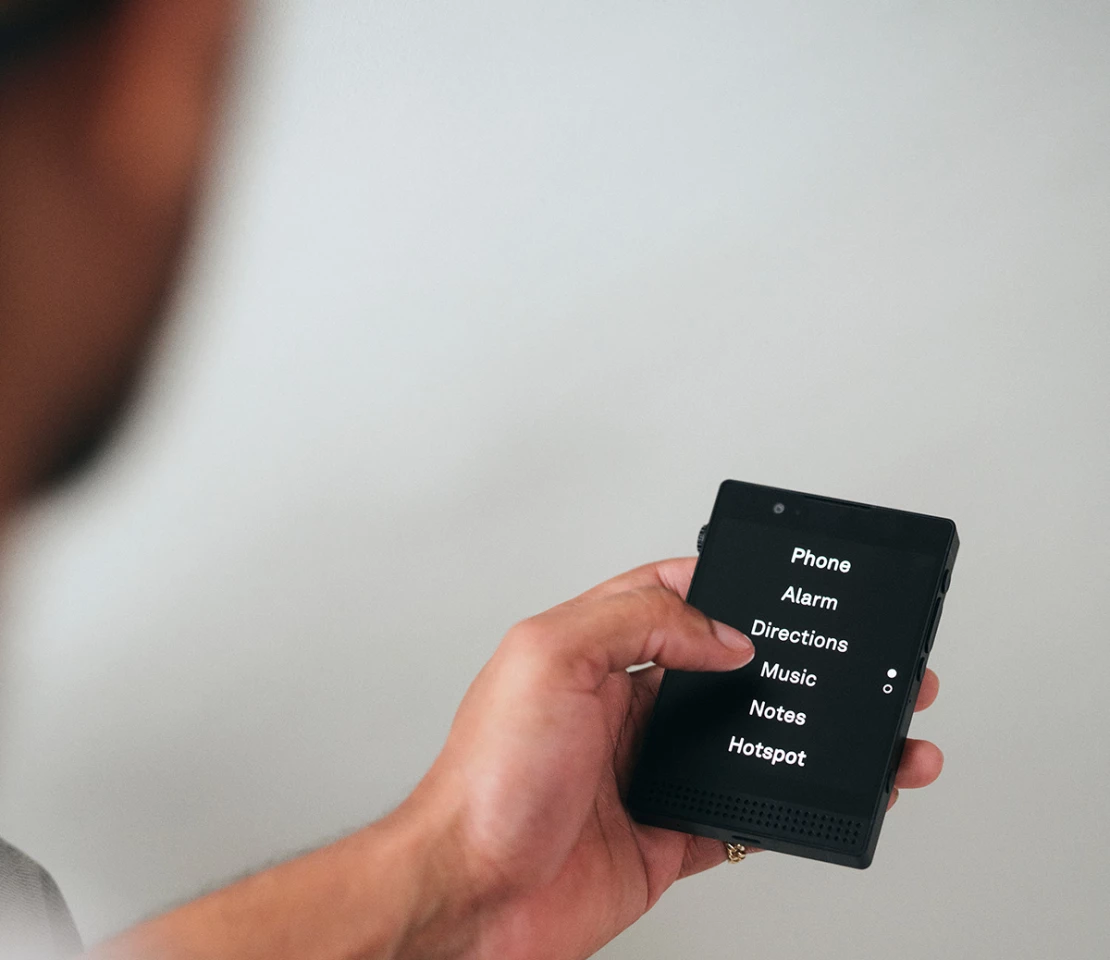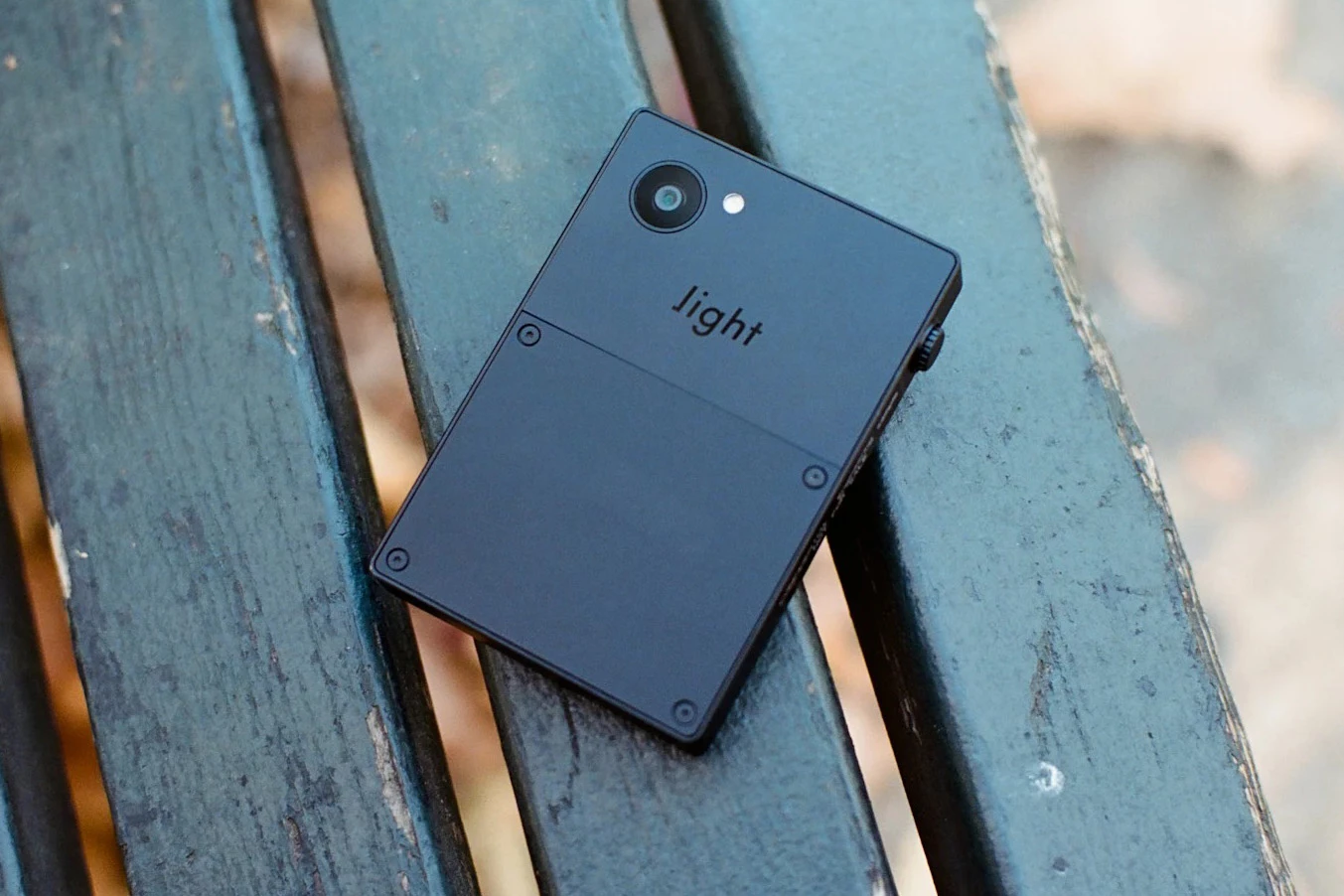The third-gen Light Phone from the eponymous New York-based outfit is here. This one gets a bunch of thoughtful new features to help you stay mostly unplugged, while potentially making it easier to live with.
The compact Light Phone III is more squarish than the previous handset, with a 3.92-inch monochrome AMOLED behind matte glass instead of the older E Ink screen.
It's all housed in a black metal frame this time around, with a recycled plastic speaker grille rounding out the bottom of the front fascia. If you're coming off a standard-sized iPhone or Android device, this will likely feel tiny in comparison.

It also gets a camera for the first time: this one delivers 12-megapixel shots from a 50-megapixel sensor. The Light Phone Inc says its binning technique applied to this sensor should help put out decent pictures in low light conditions, and the team has been working to tune colors and other parameters for a look that's inspired by point-and-shoot film cameras.

The samples on this page look nice enough, though I wouldn't bother comparing them to photos from phones that tout high-end camera componentry and computational photography wizardry. The goal here is to simply have a fun-to-use snapper on you without getting nerdy about it.
There's also a USB-C charging port, fingerprint ID built into the power button, a flashlight, and an NFC chip for payments. It supports 5G across most bands, so it should play nice with many international carriers around the world, and it's only available unlocked. Sadly, you won't get a charger in the box, and the phone doesn't get a headphone jack.

I really appreciate the inclusion of tactile controls on this model. You get volume buttons, a menu button, and a dedicated shutter button that you can half-press to focus before pressing fully to shoot. There's also a separate wheel that lets you adjust screen brightness anytime, while clicking it turns on the flashlight.
As with its predecessors, the III runs the company's minimalist Android-based LightOS, with just a handful of apps on board. The short list includes an alarm, calculator, calendar, a messaging app, and music and podcast players. The Here mapping platform powers a custom navigation app that's designed for privacy, meaning your location and search history aren't shared.

The big sell here is that you don't have a bevy of third-party apps notifying you of incoming messages, beaming you ads for stuff you don't need, and selling your data to third parties.
You'll also get 6 GB of RAM, 128 GB of storage, an updated Qualcomm (SM4450) processor, and a user-replaceable 1,800-mAh battery. The company says that should help it last a full day of use, and potentially a lot longer before you need to charge it.

The Light Phone III is available to pre-order now at an early price of US$599, which feels to me like the upper limit for something like this. The company has slapped an awfully steep $799 estimated retail price on it, which could make it hard to switch over to this device in a bid to curb your screen time.
If you're spending that much, you'll also want to consider the BlackBerry-style Minimal Phone with an E Ink display, and the cheaper Mudita Kompakt that promises 6 days of use on a single charge.
Find the Light Phone III on the company's site, alongside slim cases and covers. The handset will begin shipping in July.
Source: The Light Phone Inc






